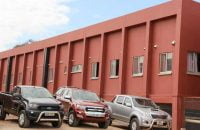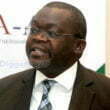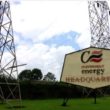ENERGY Minister Mathew Nkhuwa contradicted himself when he said that all electricity transmission and distribution infrastructure in the country is Common Carrier after issuing Statutory Instrument Number 57 (SI 57) because he specifically targeted CEC, says the Kitwe Chamber of Commerce and Industry.
And the Chamber has insisted that government ought to play the role of a fair referee and not pick sides in any commercial dispute among business players.
Speaking during the inaugural “Strictly Business” programme on Kitwe-based YAR FM, Friday, Chamber vice-president in charge of commerce Emmanuel Mbambiko said that Nkhuwa contradicted himself because he failed to include Zesco’s assets as part of the SI when he later claimed that all transmission and distribution lines in the country were declared as common carrier and not only those belonging to Copperbelt Energy Corporation (CEC).
Nkhuwa argued in a follow-up statement issued on June 23 that the recent regulatory and statutory changes arising from the SI made it clear that all transmission and distribution lines in the country were declared as common carrier to facilitate a move towards a competitive market.
“If the (Energy) Minister speaks of that nature, he contradicts himself with the SI 57 that he signed because in that SI 57 he literally just picks out all the transmission lines and all the distribution lines [of CEC], and he quotes Section 15 of the Electricity Act. Now, in that Section 15, it does not give the Minister the right to declare all the lines to be common carrier. That Section that he quotes gives the Minister the right to declare a line, not all the lines. And in his declaration in SI 57, he does not refer to Zesco. If he said, ‘all the distribution and transmission lines for both CEC and Zesco are now free,’ we’d have probably appreciated, but that’s not what he does; in fact, in the SI 57, he refers to a schedule, and that schedule is specifically on CEC and not Zesco. So, if the Minister comes to the podium and he’s saying, ‘all the lines’, that is not true, and I hope he didn’t say that because if he said that he’s actually not being truthful at all,” Mbambiko said.
And Mbambiko insisted that government ought to play the role of a fair referee and not pick sides in any commercial dispute among business players.
“We need to highlight the fact that while these are business transactions between CEC and Zesco, it would have been very good, it would have been a perfect game to play if the two players were left to play the game and government then played the role of a referee between the two, and never aligned itself with anyone of the two because government is there to protect both CEC as well as Zesco. In fact, it must also be highlighted that government has an interest shareholding in CEC just as they have an interest in Zesco. In any case, the role of government is to play an impartial role; they must never side, and never be seen to side with anyone,” Mbambiko added.
He stressed that government’s draconian actions had raised a lot of anxiety among businesses.
“But in this case, we are seeing that government has actually played a one-sided role, they have never been neutral to an extent where, as businesspeople, we feel extremely uncomfortable to run business in Zambia. Now, representing the Chamber and its members, at this point in time, as a businessperson, you are feeling so uncertain. Business, usually, is run on uncertain parameters, but even when you are running business on uncertain parameters, there are other parameters, which ought to be certain and some of them are parameters from the government; the government will define their expectations and make it a little easier for you so you know exactly what the government expects of you,” he observed.
“Now, if the government plays a game where they create an environment which is uncertain, and then you are running uncertain business with other parameters which are uncertain so the uncertainty from the government and the uncertainty from your business environment, the combination of that does not help business at all.”
He also insisted that government had no right to grab CEC’s assets.
“As business, we are saying to ourselves: ‘the government at this point is not playing the right game; they are not remaining on their lane, they are interfering with our businesses!’ CEC have done massive investments on their lines, no one has the right to grab those lines. The moment you see the government coming and grabbing the lines, it means, therefore, that anyone of us running any business, we must expect our business to be grabbed by government. So, for us, as businesses, that makes us extremely nervous because you can’t run business with this thought at the back of your mind that someone will come and grab it!” said Mbambiko.
On May 29, 2020, Nkhuwa promulgated SI 57 declaring CEC infrastructure as Common Carrier.
But stakeholders, including International Trade Economist Trevor Simumba and NDC president Chishimba Kambwili, swiftly challenged Nkhuwa to produce evidence declaring all transmission and distribution lines in the country as Common Carrier as the law demands, with the latter yet to show any such evidence.












